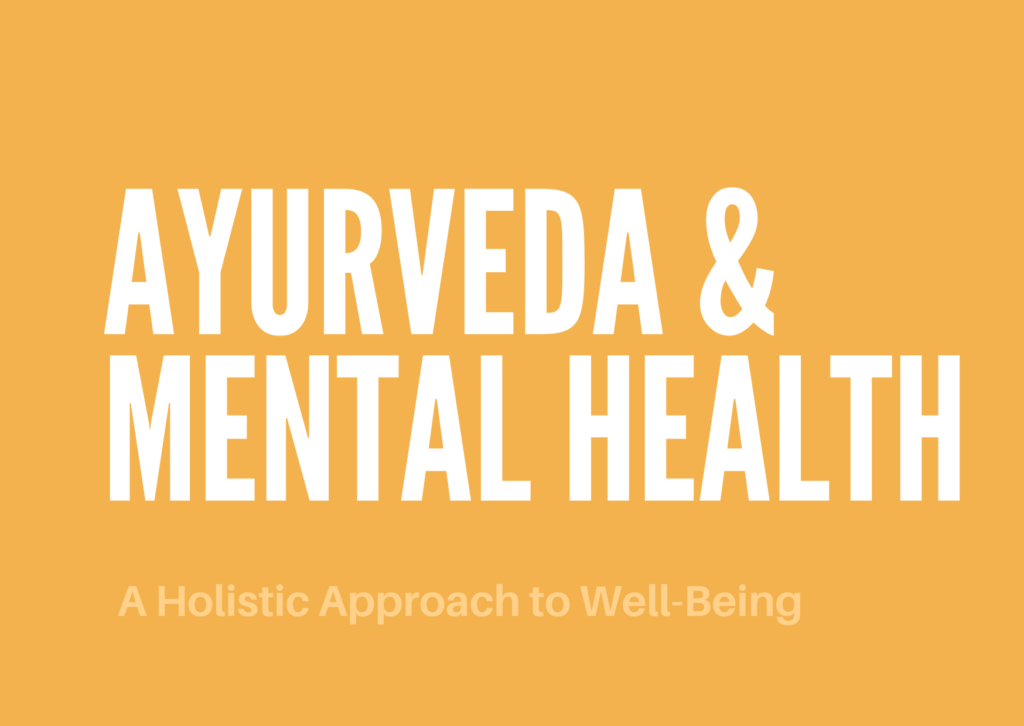In today’s fast-paced world, mental health issues have become increasingly prevalent. Stress, anxiety, depression, and other mental health disorders can significantly impact our quality of life. While modern medicine offers various treatments, Ayurveda, the ancient Indian system of medicine, provides a holistic approach to mental well-being. Ayurveda views mental health as an integral part of overall health and advocates for balance in mind, body, and spirit. In this blog, we’ll explore how Ayurveda addresses mental health and offers natural remedies to support emotional well-being.
Understanding Ayurvedic Principles
- The Concept of Doshas: Ayurveda recognizes three primary doshas—Vata, Pitta, and Kapha—that govern our physical and mental characteristics. Each dosha has unique qualities and imbalances in these doshas can contribute to mental health issues. For example, excess Vata can lead to anxiety and restlessness, while excessive Pitta may result in anger and irritability.
- Mind-Body Connection: Ayurveda emphasizes the close connection between the mind and body. A healthy body supports a healthy mind, and vice versa. Thus, lifestyle choices, diet, and daily routines can significantly impact mental health.

Ayurvedic Approaches to Mental Health
- Diet and Nutrition: Ayurveda places great importance on diet. Consuming a balanced diet tailored to your dosha can help maintain mental equilibrium. For example, Vata individuals may benefit from warm, grounding foods, while Pitta individuals should favor cooling and calming foods.
- Herbal Remedies: Ayurveda offers a plethora of herbs known for their calming and mood-stabilizing properties. Ashwagandha, Brahmi, and Jatamansi are commonly used to alleviate stress and anxiety. These herbs can be consumed in various forms, such as powders, capsules, or teas. Always better to get in touch with an Ayurvedic Doctor.
- Meditation and Yoga: Ayurveda promotes mindfulness practices like meditation and yoga to calm the mind, reduce stress, and enhance mental clarity. These practices help balance the doshas, leading to improved mental well-being.
- Abhyanga (Self-Massage): Regular self-massage with warm oil, known as Abhyanga, not only nourishes the skin but also relaxes the nervous system, reducing stress and promoting emotional stability.
- Ayurvedic Therapies: Ayurvedic therapies like Shirodhara (oil dripping on the forehead), Nasya (nasal therapy), and Panchakarma (detoxification) can help address specific mental health issues by rebalancing the doshas.
- Daily Routine: Establishing a daily routine that aligns with your dosha can provide stability and reduce mental fluctuations. This includes waking up early, practicing yoga and meditation, and having regular mealtimes.

Conclusion
Ayurveda offers a holistic and time-tested approach to mental health, focusing on the interconnectedness of the mind, body, and spirit. By understanding your dosha and adopting Ayurvedic practices tailored to your unique constitution, you can promote mental well-being, reduce stress, and enhance your overall quality of life. However, it’s essential to consult with an Ayurvedic practitioner or healthcare provider to develop a personalized approach to mental health that aligns with your individual needs and circumstances. Incorporating Ayurvedic principles into your life can contribute to a healthier, happier, and more balanced state of mind.


Leave a Reply
You must be logged in to post a comment.